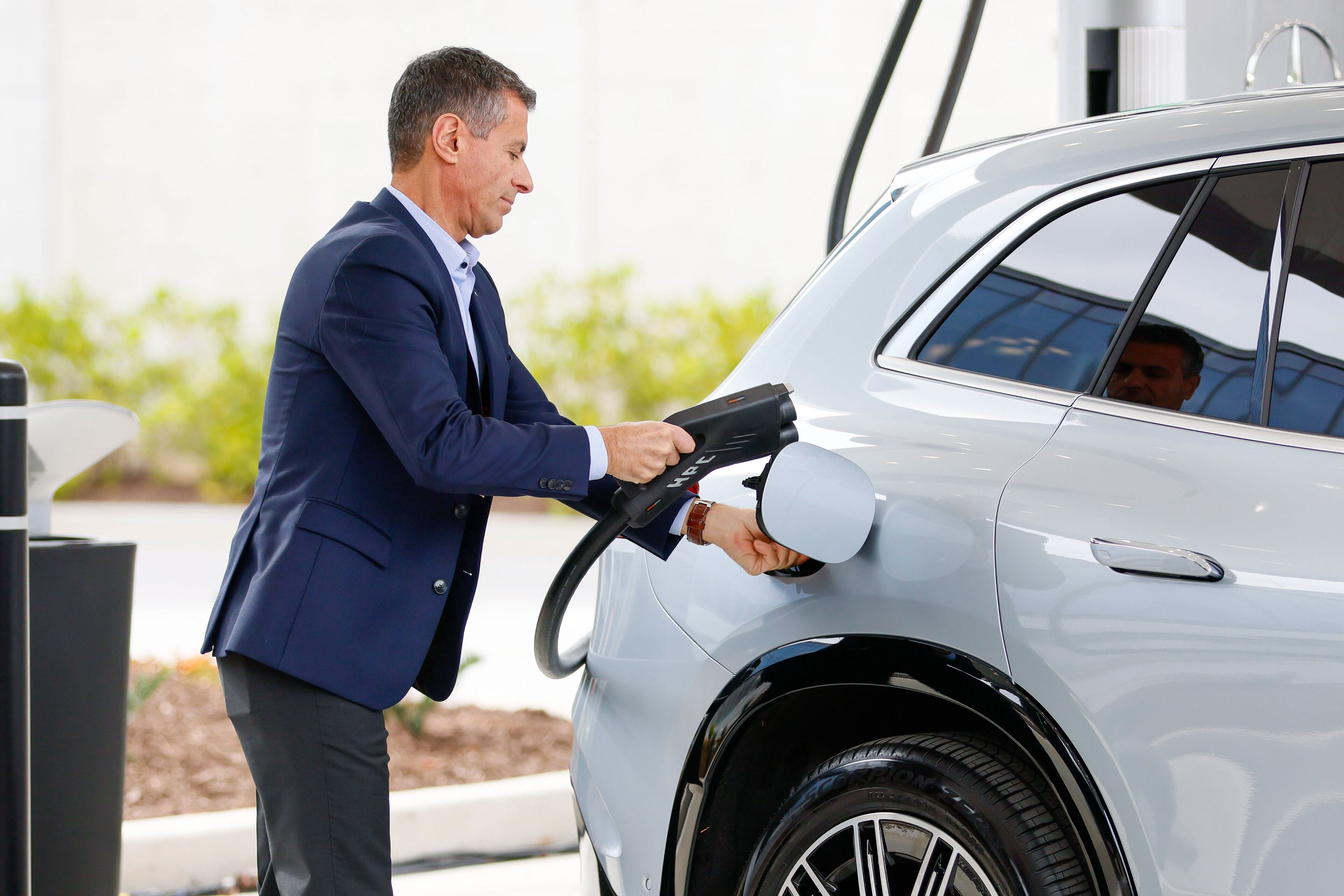Mercedes-Benz debuts ‘seamless’ EV charging hub in Sandy Springs

Sandy Springs is now home to the first Mercedes-Benz electric vehicle charging hub, but the luxury automobile brand sees it as a lynchpin in a future network of charging centers across the U.S.
Mercedes-Benz unveiled the first-of-its-kind EV fast-charging hub at the company’s U.S. headquarters along Abernathy Road near Ga. 400, kicking off an effort to install 2,000 chargers worldwide by the end of 2024. The storied German brand also recently reached deals with beloved Texas-based fuel and retail giant Buc-ee’s and mall operator Simon Property Group to open similar charging outlets in the Southeast.
Company leaders said the $1 billion initiative is a critical step in helping drive plug-in vehicle adoption.
“Charging infrastructure is lagging behind EV adoption at the moment,” said Franz Reiner, chairman of the board of Mercedes-Benz Mobility AG.
While EV adoption is increasing across the country and hitting milestones and likely to surpass 1 million new EV sales in the U.S. this year, consumers are not adopting plug-in vehicles as fast as experts and the industry predicted. At the end of this year’s third quarter, Mercedes-Benz executives told shareholders the EV market “is a pretty brutal space” while automakers brace for widespread adoption.
But Andrew Cornelia, the president and CEO of Mercedes-Benz’s EV charging arm, said bolstering the country’s charging infrastructure is a critical step to encouraging more consumers that charging their plug-in vehicle won’t be a burden.
“We want to solve the chicken and the egg and provide critical infrastructure to support EV adoption,” he said. “... Our goal is to make charging seamless and simple.”

Mercedes-Benz’ new charging hub features eight stations operated by MN8 Energy that can charge not only the company’s cars but its competitors. There’s a lounge for drivers to take a breather while their vehicles juice up on the 400-kilowatt chargers.
The recent deal with Buc-ee’s and Simon will help extend the initiative’s reach. There are currently two Buc-ee’s locations in Georgia, while Simon owns several prominent Atlanta properties, including Lenox Square and Phipps Plaza in Buckhead.
While high-speed chargers only take a few minutes to top off an EV, Cornelia said it’s important to offer drivers entertainment and retail options while they wait.
“It’s not about the charging,” he said. “It’s about what you do while you charge.”
Mercedes-Benz said there is an incentive to use its vehicles at its charging hubs. Some of its EVs on the road today will qualify for six months of free charging access, while select new vehicles could get two years of free fill-ups.

Reiner said the investment in Mercedes-Benz’s charging network is aimed to “take away at least one frustration” from potential EV adopters who are hesitant. It mirrors efforts by the federal government to shore up the country’s charging infrastructure.
President Joe Biden’s administration is pumping billions of dollars into charging initiatives, and state incentives — such as Georgia Power’s Make Ready program — have similar goals.
Georgia has emerged as a leader within the country’s EV industry, with two multi-billion-dollar production plants in the pipeline along with dozens of suppliers and battery-related facilities. State officials say Georgia has attracted more than $25 billion in EV supply chain investments and commitments for more than 30,000 jobs since 2018.



